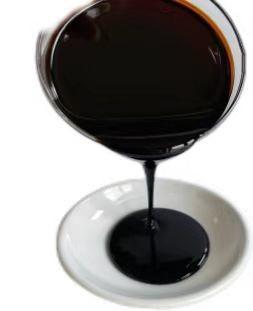| Sign In | Join Free | My himfr.com |
|
| Sign In | Join Free | My himfr.com |
|
| Ask Lasest Price | |
| Brand Name : | Jingshida |
| Certification : | None |
| Model Number : | None |
| Price : | Negotiable |
| Delivery Time : | within one week |
| Payment Terms : | T/T |
| Supply Ability : | 100,000 tons |
This product is food grade, safe and non-toxic.

1. Soil improvement and nutrient enhancement
▪ Regulate soil pH: Organic acids can neutralize alkaline soils,
alleviate soil compaction, and promote the release of nutrients in
acidic soils (such as the activation of phosphorus, iron, and
zinc).
▪ Chelate heavy metals: Combine with heavy metals (such as cadmium
and lead) through carboxyl groups to reduce their toxicity and
reduce crop absorption.
▪ Promote microbial activity: As a carbon source, stimulate the
reproduction of beneficial soil bacteria (such as nitrogen-fixing
bacteria and phosphate-dissolving bacteria) and accelerate the
decomposition of organic matter.
2. Plant growth promoters
▪ Foliar spraying: Organic acids (such as humic acid) can enhance
leaf permeability, promote the absorption of mineral elements, and
improve photosynthetic efficiency.
▪ Improved stress resistance: Help plants resist drought, salinity
and other stresses by inducing the activity of antioxidant enzymes
(SOD, POD).
▪ Seed treatment: Soaking seeds can break dormancy, increase
germination rate and seedling vitality.
3. Pest and disease control
▪ Natural antibacterial agent: Low molecular organic acids (such as
acetic acid) can penetrate the cell membrane of pathogens and
inhibit the reproduction of fungi (such as powdery mildew) and
bacteria.
▪ Alternative chemical pesticides: Compound with plant extracts to
develop environmentally friendly biological pesticides and reduce
chemical residues.
1. Water quality control
▪ Reduce pH and ammonia nitrogen: Organic acids (such as citric
acid) can neutralize the alkalinity of water, promote the
conversion of ammonia nitrogen into ionized ammonium, and reduce
toxicity.
▪ Detoxification of heavy metals: Chelate heavy metal ions such as
copper and zinc to alleviate the damage of industrial pollution to
fish and shrimp.
▪ Inhibit harmful algae: Maintain the balance of algae in water by
competitively inhibiting the growth of cyanobacteria.
2. Feed additives
Induce feeding and promote digestion: The sour taste of organic
acids (such as formic acid) can stimulate fish and shrimp to feed,
while reducing intestinal pH and activating digestive enzymes (such
as pepsin).
Alternative antibiotics: Inhibit intestinal pathogens (such as
Vibrio and Escherichia coli), reduce the incidence of enteritis,
and improve intestinal health.
Improve mineral absorption: Form soluble complexes with calcium,
magnesium, etc., and promote crustaceans (such as shrimps and
crabs) to molt and harden their shells.
3. Disease prevention and control
Water disinfection: Spray organic acid compound preparations to
inhibit pathogenic microorganisms in water and reduce diseases such
as gill rot and skin rot.
Immunity enhancement: By regulating the non-specific immunity of
fish and shrimp (such as lysozyme activity), disease resistance is
improved.
1. Feed preservation and nutrition preservation
Mold and freshness preservation: Organic acids (such as propionic
acid) can inhibit the growth of mold and bacteria in feed and
extend the shelf life.
Improve nutritional value: Acidification can reduce the loss of vitamins (such as vitamin C) during high-temperature granulation.
2. Animal health management
Intestinal health maintenance: Lowering stomach pH, inhibiting
harmful bacteria (such as Salmonella), promoting the colonization
of probiotics such as lactic acid bacteria, and reducing diarrhea.
Improve protein digestion: Acidified feed can increase pepsin activity and improve protein utilization in piglets and poultry.
Relieve heat stress: Adding citric acid and other substances can regulate blood acid-base balance and reduce the decrease in feed intake caused by high temperature.
3. Environment and excrement management
Reducing ammonia emissions: By lowering the pH of the intestine and
feces, inhibiting urease activity, and reducing ammonia
concentrations in livestock and poultry houses.
Feces composting efficiency enhancement: accelerate the
decomposition of organic matter in feces, reduce odor, and improve
the efficiency of organic fertilizer.
1. Composite acidifiers: develop a variety of organic acid compound
products to enhance synergistic effects (such as antibacterial +
feeding attraction).
2. Nanocarrier technology: use nanomaterials to embed organic acids
to achieve slow release and targeted effects.
3. Green farming transformation: replace antibiotics and chemical
disinfectants, and promote antibiotic-free farming and organic
agriculture.

|